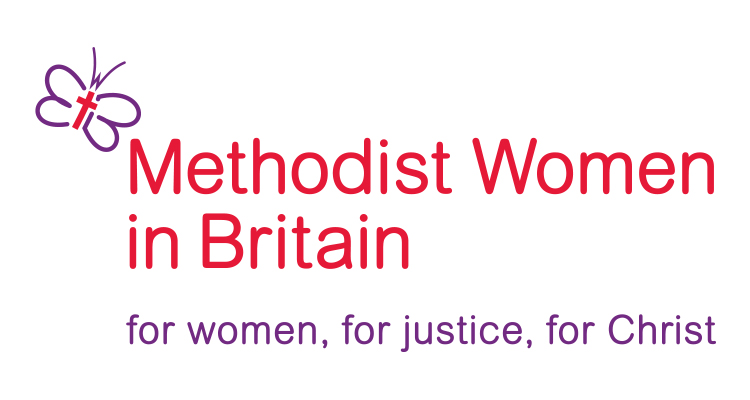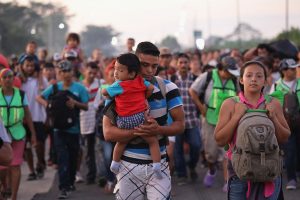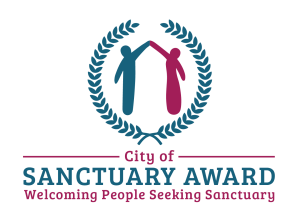Lent Reflections as we work towards the Easter Offering Service 2023 No Borders to God’s Love
Grateful thanks go to Rev’d Inderjit Bhogal whose book ‘Hospitality and Sanctuary for All provided starting points and stimulus for these reflections.
Week beginning 20th February. Sharing meals
Reading John 2:1 – 12. John 21:4 – 14
One of the joys of sharing with family and friends is being able to sit and eat together, for as we eat we share not only the food, but the pleasure of one another’s company. We exchange news and opinions, air concerns and hopes, tell jokes and stories, laugh and cry together.
The Bible gives us quite a number of examples of times when Jesus shared meals with his disciples in all the gospels. Some meals were celebrating special occasions such as the Wedding in Cana, while others were more everyday examples such as with his friends Mary and Martha. A wide range of emotions must have surrounded the Last Supper and the poignant joy of the breakfast on the beach.
What can we learn about hospitality from these meals? Are there commonalities between them? Each example shows Jesus in a key role, for even when he is not the host he makes significant contributions to the gathering, quietly taking control of the need for more wine at Cana, organising the disciples to distribute loaves and fishes despite it seeming insufficient food when 5000 people followed him, showing by example that all have something to contribute when Martha is annoyed with Mary, and hosting the disciples by cooking breakfast. Several of the stories mention Jesus breaking bread to share. He must have had a unique style of doing this for it is recognised not only by the disciples at the beach breakfast, but also by the travellers on the Emmaus road even when they had not recognised him as they walked together. So, this action is one that is fundamental to the sharing of a meal emphasising that all who are present have an equal part to play in the gathering around the ‘table’.
When we share around a table are there patterns in our behaviours which are recognisable and essential to our ability to treat each person hospitably and fairly? Are there any similarities between the ways in which we learn of Jesus meal sharing and our own? The Easter Offering service this year focusses around welcome and hospitality, especially to those who are considered as strangers.
Reflect on meals that you have shared with your own family and/or friends. Are there differences in the ways people behave when there is a range of age groups? Does the setting alter the way people behave? If there is someone present who has not been in your group before, does that make any adjustments to people’s conversation or behaviour? Jesus’ key message was to love God, and love our neighbour. Do we construct limits or create borders to exclude anyone from God’s love?
Prayer This week many friends and families will share in making and enjoying pancakes, a long tradition for the start of Lent when people traditionally reduced their range of foods and fasted in preparation for Easter. We give thanks for the sharing in ways more than eating food, the support and encouragement we give and receive. We are grateful for this time of consciously giving something up that we enjoy, of being able to reflect on how we interact with others in our day to day lives; how the examples of Jesus acts of hospitality are reflecting in our own ways of sharing; the importance of meals as acts of preparation for future events. Help us to recognise that each meal can reflect your love and your welcome. Amen
Week beginning 27th February 2023
Read Genesis 43:32 – 34 and Exodus 23: 1 – 9 (with apologies for the missing Bible reference before)
The excerpt from the story of Joseph draws our attention to the differences between Egyptian and Hebrew culture. It can make us think of strangers in our midst; people whose day to day habits do not match our own; people whose food is prepared and served in ways we are unfamiliar with, whose clothing style is unusual in their setting. Many people find it difficult to accept the habits and traditions of other cultures seeing them as ‘alien’. They tend then to be wary of such strangers. The Hebrew’s teaching instructed that strangers must be treated well, and protected from harm. They understood what it is to stand out as different, to be a stranger in a strange land. ‘You shall not oppress a resident alien; you know the heart of an alien for you were aliens in the land of Egypt.’ In Jeremiah 14;8 God is also described as an alien.
This instruction can feel counter cultural, yet it is one that comes from God. God seeks to guide us to inclusivity rather than exclusivity, for if we see strangers as ‘alien’ we are immediately setting them apart and excluding them from full engagement in the place where they are. Many across the world presently are displaced from their homes because of war, violence, aggressive governments, lack of work and opportunities, poverty – all becoming exacerbated by the effects of a changing climate. So, it is very likely that we will see more ‘strangers’ in our communities seeking to rebuild their lives to have sufficient sustenance, a home a safe place for their family. They may not know the cultural habits of the places where they settle, but most are keen to learn, to understand, to contribute to their adopted society for the benefit of all.
Reflect How scary must it be to have to leave ones country and go into the unknown. The journey may hold enormous challenges and hardships. There are those along the way who will try to cheat, to take advantage, to steal what is precious, to be aggressive and violent for their own gain. Language can be a barrier to communicating, asking for help, for food, for directions. Imagine that the only food available is something you have never seen before. Consider the bravery needed simply to try a new dish. Think on a personal level when this has been an experience for you. How did you feel? How did you react?
Prayer Loving God as we meet people whom we have never met before may we be accepting of their differences, respectful of their culture and seek to find common ground. Help us to recognise that every human being was created by you, that we have so much that we share in our being and our lives. Make us brave to learn about other ways of living, other styles of dressing, other foods that we may find joy in the discoveries and grow greater understanding of your whole creation here on earth.
Week beginning 6th March
Read Hebrews 13:2 Matthew 25:34 – 36
When do we entertain strangers unawares? We open our church doors on Sundays and through each week for worship and a wide range of other activities, both for our congregations and for community members. We do not always know everyone who joins in an activity, some are ‘strangers’ – people we have never met before. Generally, we seek to give a welcome, to make people feel at ease, but that can be tricky. Some people are happy to converse and may almost tell their life story from first meeting, while others prefer to sit at the back, take in what is happening and slowly start to interact. Those acting in the role of host need to be conscious of welcoming in a way which will not immediately make new visitors want to leave, never to return! So, how do we get it right? There are no absolute ‘rules’, but a warm smile is usually a good start, a few words of welcome and perhaps a guide such as ‘sit wherever you would like’, and ‘if you have any questions please come and ask. This gives an opening for those who want more conversation, but a chance to find a quiet spot for those who are unsure.
Building relationships is fundamental to building a community which seeks to follow Christ’s example, and hospitality is a key factor in helping to build relationships. Jesus did not seem to have problems relating to people, and he most often sought out the poor and marginalised. He ignored the fact that some people were considered ‘unclean’ and deliberately associated with them and often ate with them. Reverend Inderjit Bhogal suggests that ‘..followers of Christ have no option but to welcome the stranger, and to share good hospitality, and journey as pilgrims together.’ [Hospitality and Sanctuary for All 2021]
Reflect In our society we still create systems where some are marginalised. Think about what it is that excludes and marginalises people. Is it their appearance, character, smell? Or is it the difference in wealth , education, or opportunity? Does it relate to where they live, or the kind of hoe, or not, that they have?
If we believe that every person is made in God’s image and valued equally, how does that affect our own behaviour and that of the church and community that we are part of?
Prayer Lord, we want to follow your example, to provide a welcome for all, a place where they feel relaxed and at ease; a place where they can play their part and be included, but sometimes it is hard. It is hard to know what to say or how much to say. We need you beside us to guide our thoughts, words and actions so that we are able to follow your example more closely. Help us to be relaxed ourselves as we welcome others to our homes, our groups and our churches. Lead our planning to provide the facilities and groups that people most need to support their lives, and help us to make links so that everyone feels that they can contribute, using their skills and talents.
Week beginning 13th March 2023 God as a migrant
Reading: 1Kings 8:27 – 29. Exodus 25:8
How do we understand God being with us? The Bible tells us that God created all things, and suggests that God inhabits everywhere – heaven and earth. We learn that God accompanied people on their journeys, he was amongst them. The Israelites made a special box called the Ark to carry God’s spirit with them wherever they travelled. So, in travelling with the people god becomes a wanderer, a migrant, travelling from place to place. There are many stories in the Bible of people travelling because God has instructed them to go somewhere to do a task, and God accompanies them.
He guides, dwelling with us as we go through life if we let him. The Old Testament stories do not reveal what God might look like. He appears in dreams; a voice is heard; a bush burns. There is no physical, tangible object representing God, just the Ark to carry –a temporary shelter, a mobile ‘home’. It is when God sends Jesus as a human being that we are able to glimpse more of God, as Jesus comes to dwell among us. The Greek word which we understand as ‘dwelt’ corresponds to a noun for ‘tent’, which can also mean ‘tabernacle’. The Ark of the Covenant was house in the tabernacle. It was the Hebrew’s response to God saying ‘Make me a sanctuary, so I may dwell among you.’ [Exodus 25:8]. The migrancy of God is further emphasised as one of the first experiences following Christ’s birth was the need for Mary and Joseph to flee with him to Egypt.
Reflect: In our day and society do we carry God with us everywhere? Are we conscious of God presence? Do we hear his voice? How do we recognise when God is communicating with us? Are we open to hear the messages? Do we have special places where we find God more easily?
Does the repeating thought in the night prompt us to respond and act? When we are thinking about doing a task which is aimed at promoting our faith, what makes the difference from thinking into action? Is it something we see or hear through conversation with a friend or read a sign in the community? What is it that determines what we will do for God?
Prayer: Help us please to learn the signs when you are asking us to respond. We pray that we are open to your calling, and can trust in your guidance to embark on tasks for you. We ask that you sustain us, giving us energy to keep working until a task is complete. May we always abide in you.
Week beginning 20th March
Read: Deuteronomy 10:19 Matthew 25:37 – 46
There are many references to loving the stranger in the Old Testament. It is one of the most repeated exhortations to the Jews. There is an implication that there have always been travellers and movement of people, and also that there will always be ‘strangers’ coming amongst us. In our time there are more people displaced and migrating, forced from their homes by a range of dangers and fears, than at any other time in human history. If the predictions for a changing climate are correct, which evidence suggests that they are, then these numbers can only increase. Dried up or flooded lands cannot sustain crops and where there is no food people cannot live. Rising temperatures also seem to increase the stress and lead to consequent aggression which can turn to violence. Women and children are then more vulnerable to be recipients of abuse.
This puts a significant responsibility on those who work to follow Christ’s example, to provide for the ‘strangers’ the displaced, and abused, to offer them sanctuary, friendship and support. There is a Celtic proverb which says:
In the shelter of each other people live’. God is perhaps expecting us to respond positively, to be generous. If you have the opportunity it would be interesting to talk to people from different faith traditions, or none, about their perspectives regarding welcoming strangers. Alternatively, perhaps do some reading around hospitality.
Reflect: Central to Christ’s ministry is hospitality, care and concern for others as seen in his healing, his stories for teaching and his examples, his focus on those at the margins of society. To what extent can we glimpse God and his purposes for humankind in the ministry of Jesus?
Prayer: In our striving to live our lives in your ways God, learning from the life of Jesus, please grant us understanding. Show us how we can love those whom we meet, whatever their circumstances. Grant us grace, energy and resources, so that we may be generous in serving others.
Week beginning 27th March
Read; Exodus 2: 23 – 25. 1 Peter 2:9 – 10
The Hebrews were not happy in Egypt. They felt hurt and upset at their predicament. This passage in Exodus highlights that God listened to their concerns and responded to them. it took a long time before they were able to settle in their own lands, but in due time they were able to live as they wished. It is interesting to imagine what their thoughts and words may have been. We know that their journey was not always straightforward, and there were complaints, but there was no going back. They had to look to the future, overcome challenges and plan for the future, hoping for better things.
The charities that work to welcome and help to settle newcomers to our society often comment that they learn so much from those that they re supporting. They recognise the skills that exist, and the experience form their previous lives in other parts of the world. They also recognise the frustration involved when skills and qualifications are not recognised, and being able to work and be independent is denied. The refugees and migrants of today all face challenges and dangers as they journey. They do not always know where they may finally settle or how long it will take to get there. They have to be resilient and patient. Many who meet and work with them comment on their cheerfulness and determination.
Reflect: Travelling people, with no place to call home, who are searching for a new life in a safe place, are often regarded as non people, that is people who are somehow undeserving, less than human. Consider that such misfortune could happen to anyone. How might you react and behave? How do you think you would feel?
Prayer: God, you are our rock and our shelter in times of trouble and challenge. Help us to hold fast to you so that you can guide our journey of life. We ask you to let those who are forced to travel into the unknown feel your presence close to them, gently guiding and keeping them safe. We pray for them and for those who give of their time and talents to comfort, welcome, educate and support, helping them to establish in a new home land.
Week beginning 3rd April
Read: Isaiah 53, Luke 24:26
As we near Easter the last journey of Jesus comes into sharp focus. The Isaiah reading is often read as we consider the life of Jesus and the expectations of ‘Messiah’. Jesus is seen as the embodiment of the ‘suffering servant’. He experienced much negativity in the false testimony of some who spoke against him. He was arrested and held in captivity. He experienced torture and humiliation and finally was crucified. What more could the son of God suffer? Yet so often the bible tells us that suffering is part of the journey to salvation. Christ’s crucifixion shows him in the midst of human suffering, sharing in some of the worst that can happen to humankind. In its graphic reality it shows how much God loves and cares for all of us; that he shares in it. Christ’s human life shows us the possibilities of life lived to the full and how care and healing can be integral. The resurrection which follows after illustrates the hope of something much better.
Reflect: How do we relate our understanding of Christ’s suffering, death and resurrection to things which happen to people now? When we see others needs in undeserved torture, homelessness, human trafficking, and persecution, do we see Christ’s story alongside? How then if we profess to be Christians do we respond? Can we do one thing to ease the tragedy of one other person’s life?
How do stories of tragedy and hardship enrich our lives?
Prayer: Loving and generous God, as we recall and revisit the accounts of the life of your son Jesus, help us to grasp that whatever hardships we suffer, there is always hope, and that you are always there with us in our experiences, even though we may not be aware of it. Thank you for Jesus’ life and all that we can learn from it. Help us to be faithful to your teaching, and always to strive to understand more so that our lives are worthy of being your follower. May we experience and share in the joy of Christ alive as we celebrate Easter.











